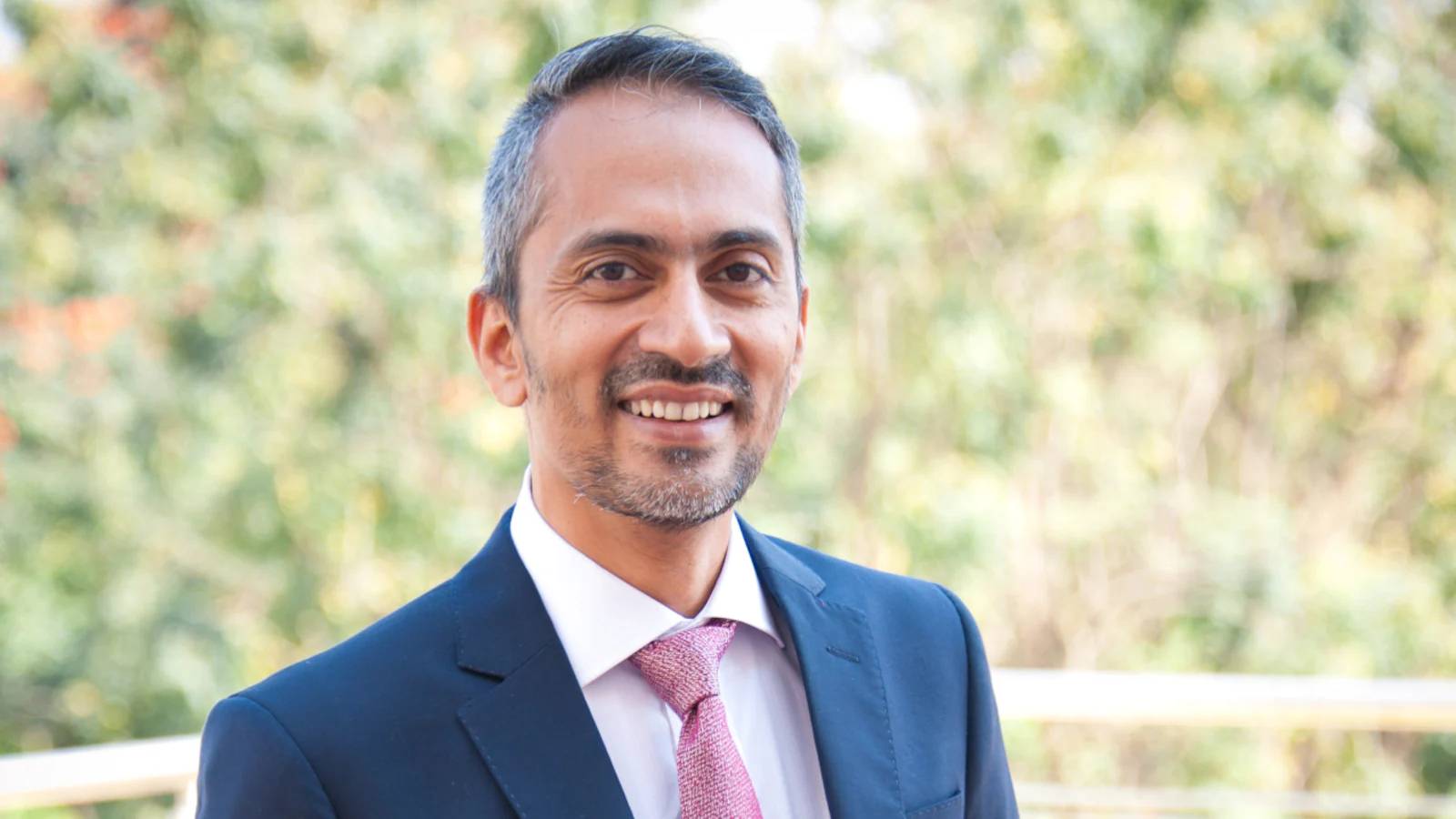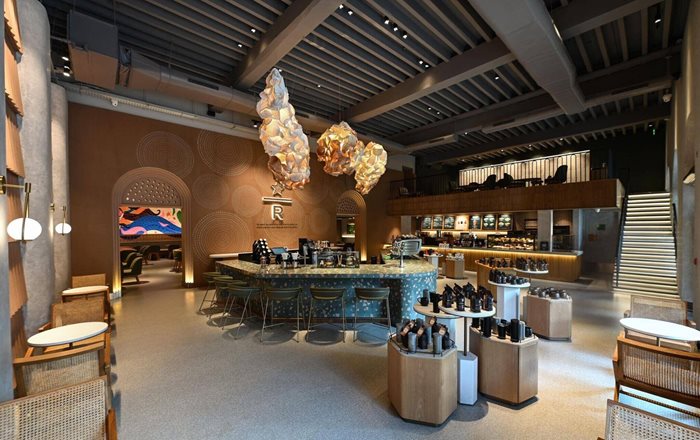India has long been a tea drinking nation but it also has deep roots as one of the world’s major coffee producers. Tata Starbucks CEO Sushant Dash speaks to 5THWAVE about flying the flag for coffee in India and how the country’s younger consumers are leading a new wave of café culture
.jpg.aspx?lang=en-GB&width=700&height=393)
Tata Starbucks CEO, Sushant Dash | Photo credit: Tata Starbucks
With more than two decades’ beverage industry experience under his belt, Tata Starbucks CEO Sushant Dash is now focused on harnessing India’s huge potential as a coffee drinking nation. That’s no mean feat in a country where tea has long been the beverage of choice, but it is a challenge he is relishing – and his efforts are yielding significant results.
Following the disruption of the pandemic, Tata Starbucks is tapping into new opportunities in the vast Indian market and now operates more than 320 stores in 37 cities across the country, having achieved record 72% revenue growth in 2022.
First joining Tata Global Beverages in 2000, Dash held senior management roles across the conglomerate’s international beverage divisions and was later part of the core team that launched Starbucks in India in 2012.
After being appointed CEO of Tata Starbucks in 2021, Dash is now focused on catalysing further growth for Starbucks in India’s fast-developing branded coffee shop market.
However, as Dash notes, that growth has been delivered through a long-term strategic focus, with most consumers historically unfamiliar with out-of-home coffee consumption.
“India is a tea market,” he says of the countryʼs 1.4 billion citizens.
“If I look at in-home consumption 90% penetration is for tea; coffee is around 11-12% in terms of overall penetration.”
However, Dash notes the country’s coffee producing southern states as outliers, where traditional filter coffee consumption is far more widespread.
Times are changing, however, as consumers across India develop a taste for premium coffee and café experiences. Both in-home and out-of-home coffee consumption have steadily grown across India over the last decade, with Starbucks playing a key role in the ascent of café culture. Today, Dash pegs India’s coffee shop market growth at 9-10% CAGR.
“Gen Z and Millennials constitute 50%-plus of our population, and that is contributing to the growth of coffee consumption”
The new coffee crop
It may come as a surprise that India is the world’s seventh largest coffee producer, yielding around 329,000 metric tonnes in 2022, with the southern states of Karnataka, Kerala and Tamil Nadu accounting for over 90% of national production.
Tata Coffee is the undeniable giant of India’s coffee industry, managing 19 coffee plantations across 8,000 hectares and making it the ideal partner for Starbucks to vertically integrate coffee resources and expertise through its joint venture.
Reflecting on a decade of growth for Tata Starbucks in India, Dash says there has been a seismic shift in coffee consumption, notably led by the country’s younger, increasingly well-travelled and digitally connected consumers.
“Gen Z and Millennials constitute 50%-plus of our population, and that is contributing to the growth of coffee consumption,” he says.
Dash is now building on the foundations laid by his team more than a decade ago. After establishing the Starbucks brand in major cities across the country, his current focus is now to grow the brand in smaller urban centres as coffee culture catches on.
“The first eight-to-nine years were about understanding what makes the business successful in India, how to replicate what Starbucks is known for in terms of its coffee expertise and overall experience,” he says.
After honing Starbucks’ approach in India, which has evolved to include a range of store formats, including larger showcase outlets alongside smaller convenience formats, including drive-thru, Dash says his priority is to scale this approach across the country.
“Priority one has been about expansion, but expansion in a mindful manner. We will continue to give the core of what the brand stands for in terms of the Starbucks experience in terms of coffee expertise,” he says.
“We serve nearly 400,000 consumers a week, which is a phenomenal number and just shows us the brand love we have.”

Interior of the Starbucks Reserve store in Mumbai | Photo credit: Tata Starbucks
Paying homage to India’s rich and diverse culinary traditions has also been a key part of tailoring Starbucks’ international offer to the market. Its food menu has been inspired by Indian favourites, enabling customers to enjoy a kakori kebab wrap or masala chicken croissant with a traditional masala chai or Indian filter coffee.
Unique to the Indian market, Tata Starbucks’ ‘Picco’ beverage size is a nod to small ‘kulhad’ terracotta tea and coffee cups used throughout India and caters to a widespread preference for smaller beverage volumes.
Indicating Starbucks is gaining widespread appeal in India, Dash points to recent successes opening stores away from India’s vast metropolises in the country’s smaller towns and cities, such as Jalandhar, Anand, Nagpur and Calicut.
“We are getting the same love and affection and numbers in those cities as in the bigger cities, which just goes to show that people are looking for coffee experiences out-of-home.
“In terms of our 12-month financial year we opened around 58 stores this year and 12 new cities and will continue to run at that rate or maybe slightly higher,” he says.
Convenience in the cup
Opening smaller, nimbler store formats has been another key driver of Tata Starbucks’ rapid growth over the last year, enabling the coffee chain to expand efficiently and open stores appropriate to their location.
The first drive-thru location opened on the Chandigarh-Ambala highway in mid-2020, but Dash highlights delivery as one of the chain’s most promising convenience channels in the post-pandemic trading environment.
“Today, delivery is around 11% of turnover,” he says. “Pre-Covid the figure was around 4%, so it has grown significantly. Even as the pandemic recedes and people have returned to stores, we still see delivery retaining that contribution and I think that is a trend that is here to stay.”
Mobile ordering and pay were also introduced by Starbucks during the pandemic, and although making up a relatively small proportion of sales today, will remain long-term fixtures of the Starbucks experience in India, Dash adds.
“Priority one has been about expansion, but expansion in a mindful manner”
Next stop, specialty
Convenience is yielding positive returns for Tata Starbucks, but Dash maintains that a diverse eco-system of market-appropriate store formats will be key to the brand’s success.
“We will not over-index one format, we will open stores appropriate for the market,” he says.
Adding to that diversity, in October 2020 Tata Starbucks marked its 10th anniversary by opening India’s first Reserve outlet in Fort, Mumbai.
Offering a range of small-batch single origin coffees served by Starbucks’ master ‘black apron’ baristas, Dash says the store will cater to Indian consumers who have followed Starbucks’ journey in the country from the beginning and have developed a taste for more sophisticated varieties.
“We wanted to give that elevated experience to consumers who have been here with us for the last 10 years,” he says.
“There is definitely a market for specialty coffee as the market matures. In terms of the evolution of people’s understanding of coffee, what they want from coffee is also increasing.”
With India producing its own crop of successful coffee businesses alongside a growing international segment, Starbucks’ role in introducing elevated coffee shop experiences to consumers is evident and demonstrated by the growing popularity of café culture across the country.
This article was first published in Issue 14 of 5THWAVE magazine.
Subscribe to 5THWAVE to receive each edition in print and digitally or sign up to our newsletter and be the first to read the latest articles and updates on World Coffee Portal research.
